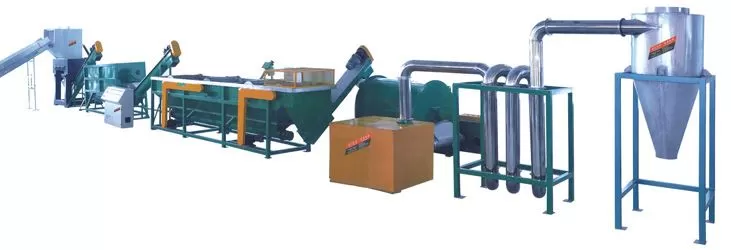Environmental pollution is a growing concern. Nations worldwide are taking steps to address it. But why are Denmark’s environmental policies considered a global benchmark? What innovative measures have they taken in plastic recycling?

Denmark’s environmental policies are renowned for their comprehensiveness and innovation. From strict waste management to advanced recycling technologies, they lead the world. Particularly in plastic recycling, Denmark has enacted detailed regulations and introduced numerous incentives to achieve sustainability goals.
Let’s delve into Denmark’s environmental policies and their specific approaches to plastic recycling. You’ll understand how this Nordic country is driving societal progress through environmental actions.
What Are the Characteristics of Denmark’s Environmental Policies?
Denmark’s environmental policies focus on comprehensiveness and sustainability. They not only aim for short-term results but also emphasize long-term environmental protection strategies.
How Is Waste Managed?
Denmark has strict and efficient waste management policies. They promote a garbage classification system that divides waste into recyclable, combustible, and landfill categories.
Garbage Classification
In Denmark, garbage classification is a daily habit for every household. From paper to plastic, each material has a specific recycling method.
Waste Treatment Facilities
Denmark boasts advanced waste treatment facilities that efficiently process garbage. These facilities also generate energy through incineration, providing electricity and heating for cities.
What Are the Specific Measures for Plastic Recycling?
Plastic Bottle Recycling System
Denmark’s plastic bottle recycling system is exemplary. Consumers pay a deposit when purchasing plastic bottle beverages and get it back when returning empty bottles. This incentive mechanism significantly boosts the recycling rate.
Reusing Plastic Waste
Denmark encourages companies to use recycled plastic to manufacture new products, reducing dependence on raw materials. Many Danish businesses now incorporate recycled plastic in production, promoting a circular economy.
What Support Policies Does the Government Offer?
Tax Incentives
The Danish government provides tax incentives for companies using recycled materials, encouraging more businesses to participate in environmental actions.
Subsidies and Grants
The government also offers subsidies and grants to environmental projects, supporting technological research and innovation. These funds help companies and research institutions develop new recycling technologies and improve efficiency.
Denmark’s Role in International Environmental Cooperation?
Participation in International Agreements
Denmark actively participates in international environmental agreements, such as the Paris Agreement, and shares its success stories at international conferences.
Technology Export
Denmark also exports its advanced environmental technologies and management expertise to other countries, helping to improve global waste treatment and recycling standards.
The Importance of Public Participation?
Public Education
Denmark places great emphasis on environmental education. From primary school, students learn about garbage classification and environmental protection. This education fosters a new generation of environmental awareness.
Community Activities
Communities often organize environmental activities, such as cleanup days and recycling competitions, encouraging public participation and contributing to environmental protection.
What Are the Future Environmental Goals?
Reducing Plastic Use
Denmark plans to significantly reduce single-use plastic products in the coming years by promoting alternatives and increasing recycling rates.
Increasing Recycling Rates
Denmark aims to raise the plastic recycling rate to over 90%. They plan to achieve this by further improving the recycling system and increasing public participation.
Conclusion
Denmark’s success in environmental policies and plastic recycling offers valuable lessons for other countries. Through government support, corporate innovation, and public participation, they have paved a sustainable development path. We hope more countries can learn from this and work together for a better future.
That’s it! By understanding Denmark’s environmental policies and plastic recycling measures, we see a sustainable future ahead. Let’s work together to make the world a better place!
